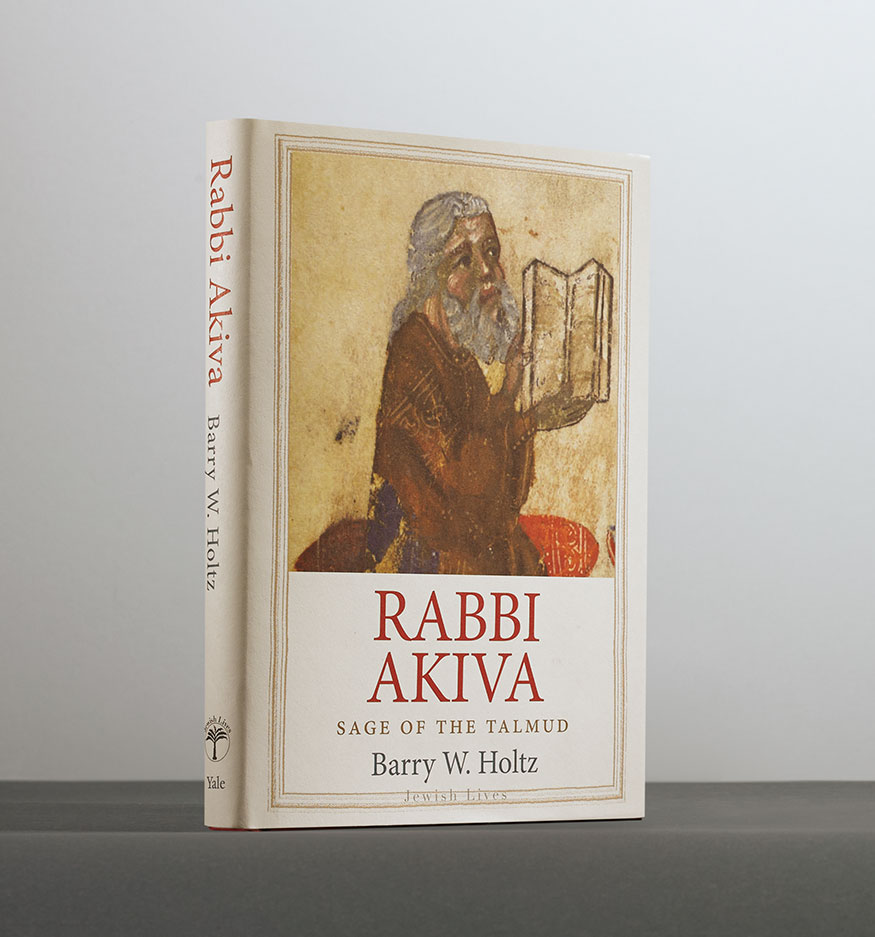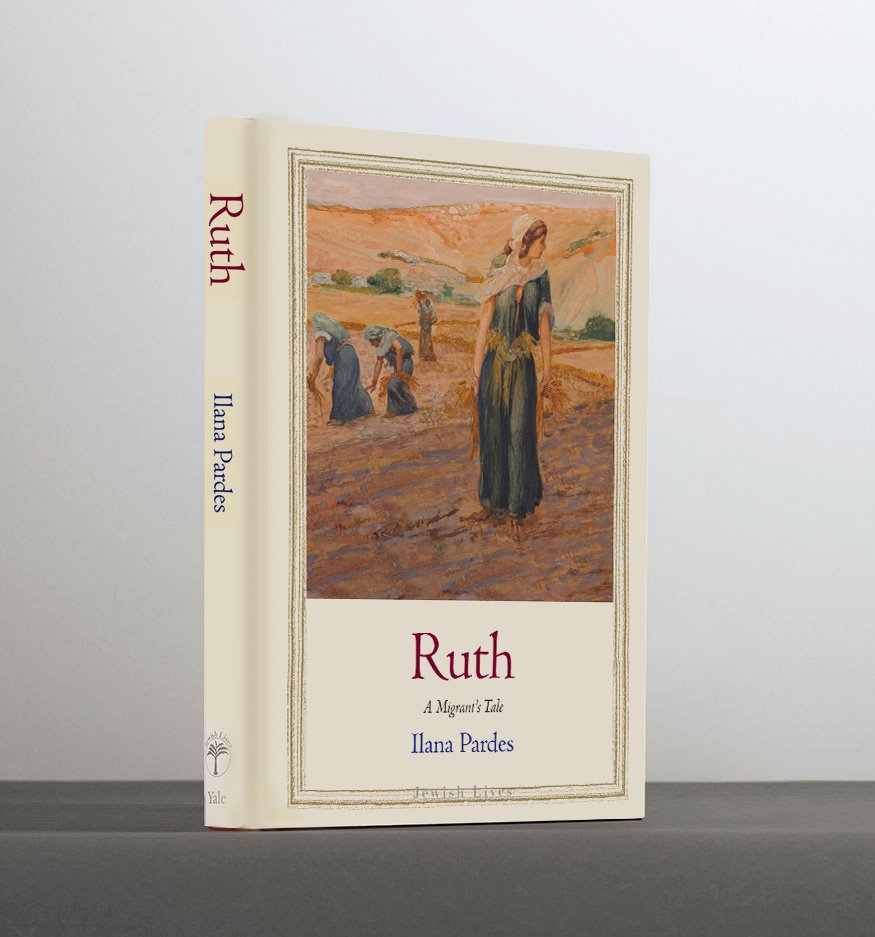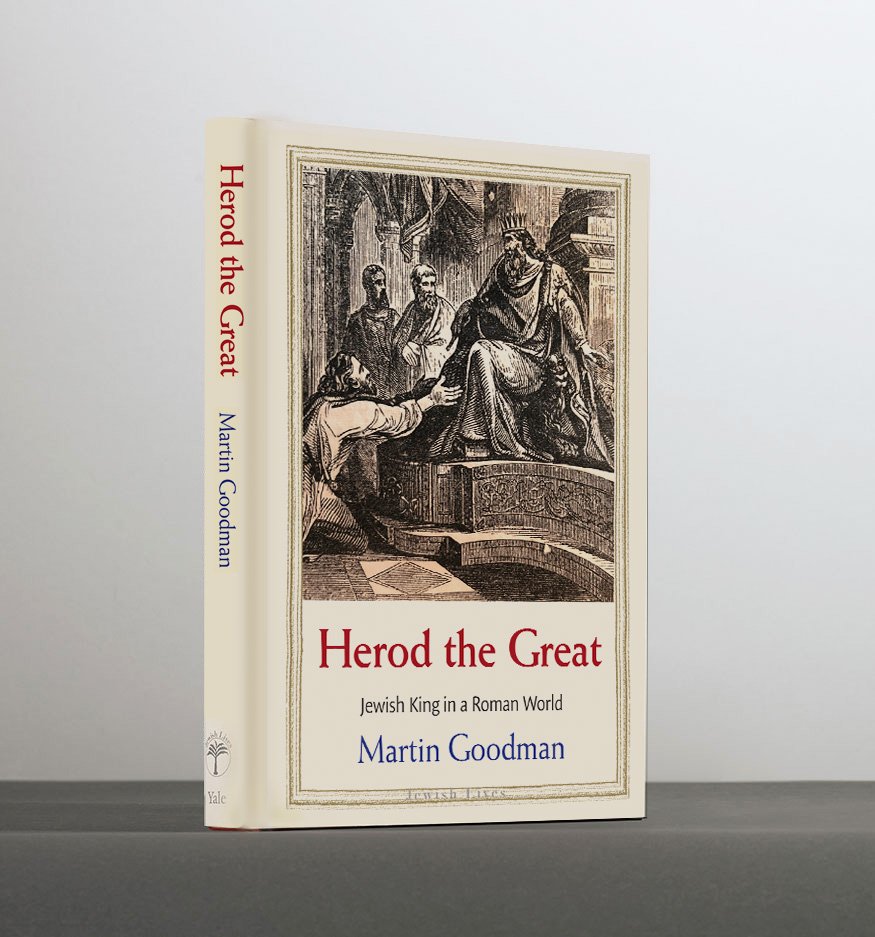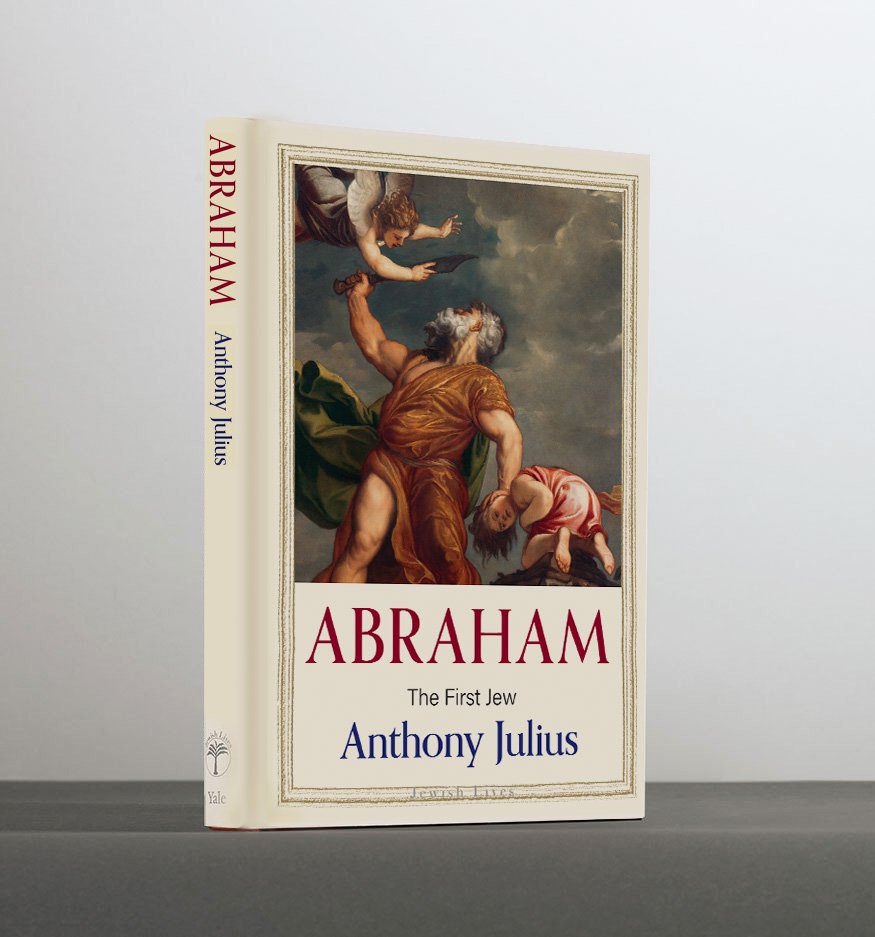Books
Antiquity. Arts + Culture. Entertainment. Philosophy + Religion. And more!

By David Wolpe
Published September 16, 2014
176 pages
“Vibrant and nuanced” —The Jewish Week
A reexamination of the biblical David, legendary warrior, poet, and king, by one of America’s most respected rabbis
Of all the figures in the Bible, David arguably stands out as the most perplexing and enigmatic. He was many things: a warrior who subdued Goliath and the Philistines; a king who united a nation; a poet who created beautiful, sensitive verse; a loyal servant of God who proposed the great Temple and founded the Messianic line; a schemer, deceiver, and adulterer who freely indulged his very human appetites.
David Wolpe, whom Newsweek called “the most influential rabbi in America,” takes a fresh look at biblical David in an attempt to find coherence in his seemingly contradictory actions and impulses. The author questions why David holds such an exalted place in history and legend, and then proceeds to unravel his complex character based on information found in the book of Samuel and later literature. What emerges is a fascinating portrait of an exceptional human being who, despite his many flaws, was truly beloved by God.

By Avivah Gottlieb Zornberg
Published November 22, 2016
240 pages
“A rich, erudite study”
—Kirkus Review, Starred Review
An unprecedented portrait of Moses's inner world and perplexing character, by a distinguished biblical scholar
No figure looms larger in Jewish culture than Moses, and few have stories more enigmatic. Avivah Gottlieb Zornberg, acclaimed for her many books on Jewish thought, turns her attention to Moses in this remarkably rich, evocative book.
Drawing on a broad range of sources—literary as well as psychoanalytic, a wealth of classical Jewish texts alongside George Eliot, W. G. Sebald, and Werner Herzog—Zornberg offers a vivid and original portrait of the biblical Moses. Moses's vexing personality, his uncertain origins, and his turbulent relations with his own people are acutely explored by Zornberg, who sees this story, told and retold, as crucial not only to the biblical past but also to the future of Jewish history.

By Yair Zakovitch
Published November 20, 2012
216 pages
“Eloquently provocative” —Choice
A powerful hero of the Bible, Jacob is also one of its most complex figures.
Bible stories recounting his life often expose his deception, lies, and greed—then, puzzlingly, attempt to justify them. In this book, eminent biblical scholar Yair Zakovitch presents a complete view of the patriarch, first examining Jacob and his life story as presented in the Bible, then also reconstructing the stories that the Bible writers suppressed—tales that were well-known, perhaps, but incompatible with the image of Jacob they wanted to promote. Through a work of extraordinary “literary archaeology,” Zakovitch explores the recesses of literary history, reaching back even to the stage of oral storytelling, to identify sources of Jacob's story that preceded the work of the Genesis writers.
The biblical writers were skilled mosaic-makers, Zakovitch shows, and their achievement was to reshape diverse pre-biblical representations of Jacob in support of their emerging new religion and identity. As the author follows Jacob in his wanderings and revelations, his successes, disgraces, and disappointments, he also considers the religious and political environment in which the Bible was written, offering a powerful explication of early Judaism.

By Steven Weitzman
Published March 29, 2011
240 pages
“Engrossing, elegant, and erudite”
—The Jewish Daily Forward
Tradition has it that King Solomon knew everything there was to know—the mysteries of nature, of love, of God himself—but what do we know of him? Esteemed biblical scholar Steven Weitzman reintroduces readers to Solomon's story and its surprising influence in shaping Western culture, and he also examines what Solomon's life, wisdom, and writings have come to mean for Jews, Christians, and Muslims over the past two thousand years.
Weitzman's Solomon is populated by a colorful cast of ambitious characters—Byzantine emperors, explorers, rabbis, saints, scientists, poets, archaeologists, trial judges, reggae singers, and moviemakers among them—whose common goal is to unearth the truth about Solomon's life and wisdom. Filled with the Solomonic texts of the Bible, along with lesser–known magical texts and other writings, this book challenges both religious and secular assumptions. Even as it seeks to tell the story of ancient Israel's greatest ruler, this insightful book is also a meditation on the Solomonic desire to know all of life's secrets, and on the role of this desire in world history.

By Barry W. Holtz
Published March 14, 2017
248 pages
“Lively and thought-provoking” —Publishers Weekly
A compelling and lucid account of the life and teachings of a founder of rabbinic Judaism and one of the most beloved heroes of Jewish history
Born in the Land of Israel around the year 50 C.E., Rabbi Akiva was the greatest rabbi of his time and one of the most important influences on Judaism as we know it today. Traditional sources tell how he was raised in poverty and unschooled in religious tradition but began to learn the Torah as an adult. In the aftermath of the destruction of Jerusalem by the Romans in 70 C.E., he helped shape a new direction for Judaism through his brilliance and his character. Mystic, legalist, theologian, and interpreter, he disputed with his colleagues in dramatic fashion yet was admired and beloved by his peers. Executed by Roman authorities for his insistence on teaching Torah in public, he became the exemplar of Jewish martyrdom.
Drawing on the latest historical and literary scholarship, this book goes beyond older biographies, untangling a complex assortment of ancient sources to present a clear and nuanced portrait of Talmudic hero Rabbi Akiva.

By Daniel C. Matt
Published March 15, 2022
248 pages
“Masterful” —Publishers Weekly (starred review)
The story of the prophet Elijah’s transformation from fierce zealot to compassionate hero and cherished figure in Jewish tradition
In the Bible Elijah is a zealous prophet, attacking idolatry and injustice, championing God. He performs miracles, restoring life and calling down fire. When his earthly life ends, he vanishes in a whirlwind, carried off to heaven in a fiery chariot. Was this a spectacular death, or did Elijah escape death entirely? The latter view prevailed. Though residing in heaven, Elijah revisits earth—to help, rescue, enlighten, and eventually herald the Messiah. Because of his messianic role, Jews open the door for Elijah during each seder—the meal commemorating liberation from slavery and anticipating final redemption.
How did this zealot turn into a compassionate hero—apparently the most popular figure in Jewish folklore? Becoming Elijah explores this question, tracing how Elijah develops from the Bible to Rabbinic Judaism, Kabbalah, and Jewish ritual (as well as Christianity and Islam). His transformation is pertinent and inspirational for our polarized, fanatical world.

By Ilana Pardes
Published October 4, 2022
232 pages
“Excellent” —Steven Weitzman
A wide-ranging exploration of the story of Ruth, a foreigner who became the founding mother of the Davidic dynasty
The biblical Ruth has inspired numerous readers from diverse cultural backgrounds across many centuries. In this insightful volume, Ilana Pardes invites us to marvel at the ever-changing perspectives on Ruth’s foreignness. She explores the rabbis’ lauding of Ruth as an exemplary convert, and the Zohar’s insistence that Ruth’s Moabite background is vital to her redemptive powers. In moving to early modern French art, she looks at pastoral paintings in which Ruth becomes a local gleaner, holding sheaves in her hands. Pardes concludes with contemporary adaptations in literature, photography, and film in which Ruth is admired for being a paradigmatic migrant woman. Ruth’s afterlives not only reveal much about their own times, but also shine new light upon this remarkable ancient tale and point to its enduring significance. In our own era of widespread migration and dislocation, Ruth remains as relevant as ever.

By Martin Goodman
Published March 12, 2024
248 pages
“Larger than life” —Erich S. Gruen
A vivid account of the political triumphs and domestic tragedies of the Jewish king Herod the Great during the turmoil of the Roman revolution
Herod the Great (73–4 BCE) was a phenomenally energetic ruler who took advantage of the chaos of the Roman revolution to establish himself as a major figure in a changing Roman world and transform the landscape of Judaea. Both Jews and Christians developed myths about his cruelty and rashness: in Christian tradition he was cast as the tyrant who ordered the Massacre of the Innocents; in the Talmud, despite fond memories of his glorious Temple in Jerusalem, he was recalled as a persecutor of rabbis.
The life of Herod is better documented than that of any other Jew from antiquity, and Martin Goodman examines the extensive literary and archaeological evidence to provide a vivid portrait of Herod in his sociopolitical context: his Idumaean origins, his installation by Rome as king of Judaea and cultivation of leading Romans, his massive architectural projects, and his presentation of himself as a Jew, most strikingly through the rebuilding of the Jerusalem Temple. Goodman argues that later stories depicting Herod as a monster derived from public interest in his execution of three of his sons after dramatic public trials foisted on him by a dynastic policy imposed by the Roman emperor.

By Anthony Julius
Published February 11, 2025
392 pages
“A unique and searching masterpiece” —Rowan Williams
The story of Abraham, the first Jew, portrayed as two lives lived by one person, paralleling the contradictions in Judaism throughout its history
In this new biography of Abraham, Judaism’s foundational figure, Anthony Julius offers an account of the origins of a fundamental struggle within Judaism between skepticism and faith, critique and affirmation, thinking for oneself and thinking under the direction of another. Julius describes Abraham’s life as two separate lives, and as a version of the collective life of the Jewish people.
Abraham’s first life is an early adulthood of questioning the polytheism of his home city of Ur Kasdim until its ruler, Nimrod, condemns him to death and he is rescued, he believes, by a miracle. In his second life, Abraham’s focus is no longer on critique but rather on conversion and on his leadership over his growing household, until God’s command that he sacrifice his son Isaac. This test, the Akedah (or “Binding”), ends with another miracle, as he believes, but as Julius argues, it is also a catastrophe for Abraham. The Akedah represents for him an unsurpassed horizon—and in Jewish life thereafter. This book focuses on Abraham as leader of the first Jewish project, Judaism, and the unresolvable, insurmountable crisis that the Akedah represents—both in his leadership and in Judaism itself.